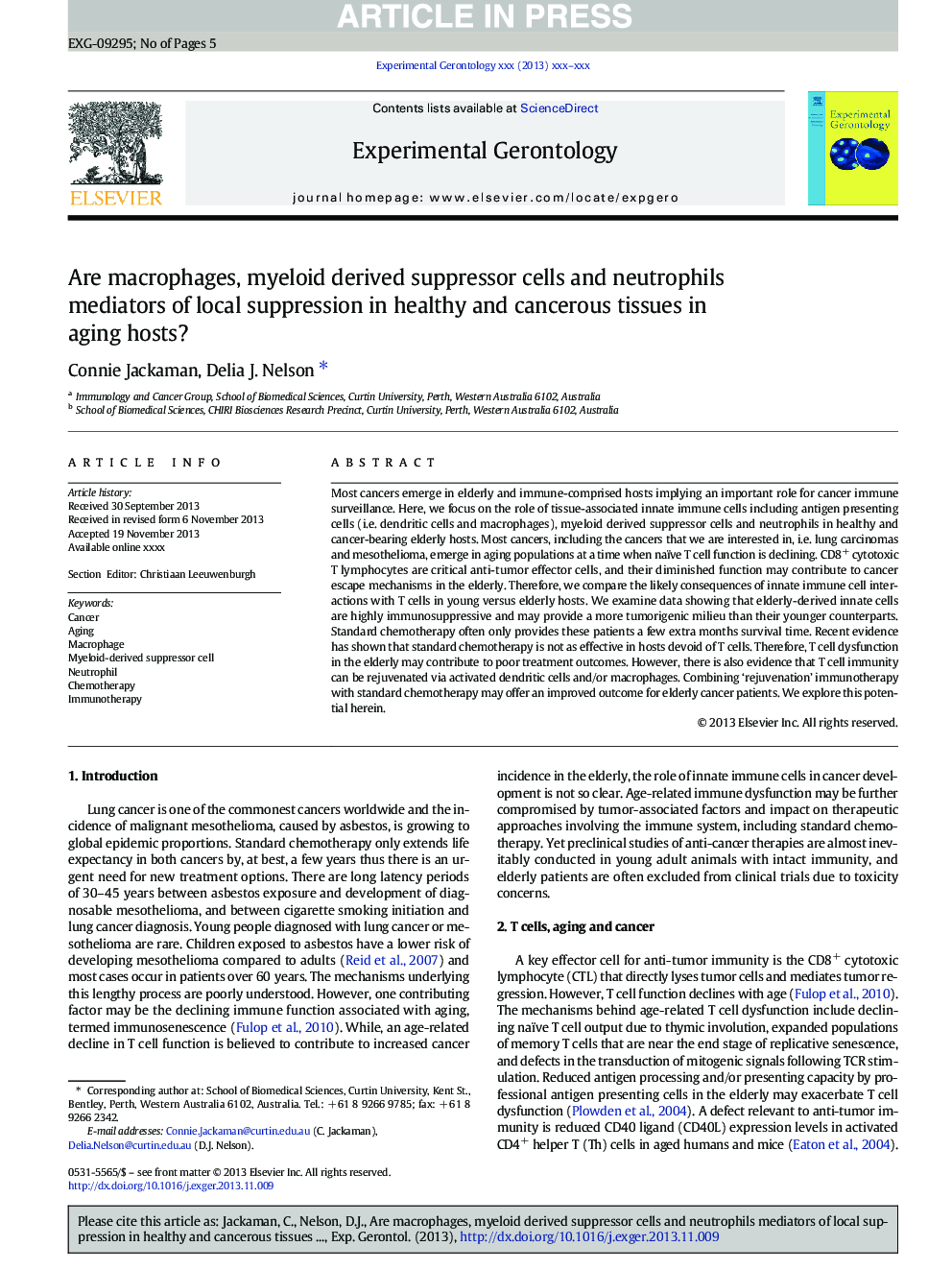| Article ID | Journal | Published Year | Pages | File Type |
|---|---|---|---|---|
| 8264439 | Experimental Gerontology | 2014 | 5 Pages |
Abstract
Most cancers emerge in elderly and immune-comprised hosts implying an important role for cancer immune surveillance. Here, we focus on the role of tissue-associated innate immune cells including antigen presenting cells (i.e. dendritic cells and macrophages), myeloid derived suppressor cells and neutrophils in healthy and cancer-bearing elderly hosts. Most cancers, including the cancers that we are interested in, i.e. lung carcinomas and mesothelioma, emerge in aging populations at a time when naïve T cell function is declining. CD8+ cytotoxic T lymphocytes are critical anti-tumor effector cells, and their diminished function may contribute to cancer escape mechanisms in the elderly. Therefore, we compare the likely consequences of innate immune cell interactions with T cells in young versus elderly hosts. We examine data showing that elderly-derived innate cells are highly immunosuppressive and may provide a more tumorigenic milieu than their younger counterparts. Standard chemotherapy often only provides these patients a few extra months survival time. Recent evidence has shown that standard chemotherapy is not as effective in hosts devoid of T cells. Therefore, T cell dysfunction in the elderly may contribute to poor treatment outcomes. However, there is also evidence that T cell immunity can be rejuvenated via activated dendritic cells and/or macrophages. Combining 'rejuvenation' immunotherapy with standard chemotherapy may offer an improved outcome for elderly cancer patients. We explore this potential herein.
Related Topics
Life Sciences
Biochemistry, Genetics and Molecular Biology
Ageing
Authors
Connie Jackaman, Delia J. Nelson,
